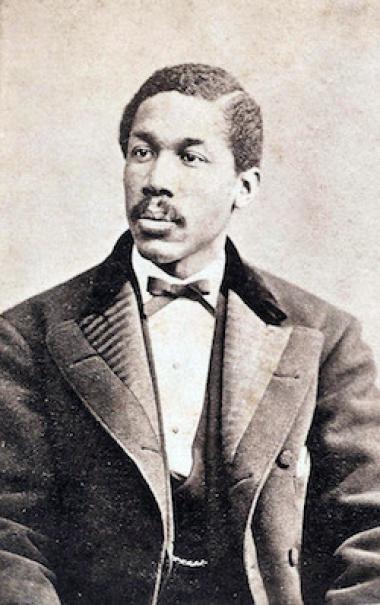
On Election Day, October 10, 1871, a White man and Democratic Party operative named Frank Kelly shot to death educator and activist Octavius Valentine Catto (1839–1871) in an attempt to keep him and other Black citizens of Philadelphia, Pennsylvania, from voting following that state's ratification of the U.S. Constitution's fifteenth amendment, which gave those citizens the right to vote.
Octavius was born in Charleston, South Carolina, to a free woman and a freed slave millwright (some sources say his father was born free to a freed slave). Around 1850 his father moved the family to Philadelphia, where he became the pastor at the First African Presbyterian Church. Octavius attended several schools in Philadelphia and New Jersey before graduating valedictorian of his class at the Institute for Colored Youth (now Cheyney University) in 1858. He continued his studies in Washington, D.C., and, on his return to Philadelphia, became an instructor at the Institute for Colored Youth, teaching Greek, Latin, literature, and mathematics.
In 1863, when the Confederate Army invaded Pennsylvania and the call went out for emergency troops, Octavius raised a volunteer company, the 5th Brigade of the Pennsylvania National Guard. He served as a major and inspector general in the brigade and ultimately helped raise eleven regiments of "Colored Troops," which were trained at Camp William Penn before deploying to the warfront in Gettysburg.
During this time, Octavius also founded the Banneker Literary Institute and the Pennsylvania Equal Rights League and was a member of several other groups, such as the Philadelphia Library Company, the 4th Ward Black Political Club, and the Franklin Institute. After the Civil War, he organized a protest movement that resulted in the passage of the 1867 Pennsylvania law that prohibited racially segregated public transportation.
A man of wide interests, Octavius and a childhood friend formed the city's second Black baseball team—the Philadelphia Pythians. He was co-manager and a player on the team.
Following Octavius's shooting death, the shooter, Frank Kelly, disappeared from Philadelphia but was found six years later in Chicago, Illinois. After being extradited to Philadelphia, Kelly stood trial on April 23, 1877. Eyewitnesses—three White and three Black citizens—identified him as the shooter. Nonetheless, an all-White jury acquitted him.
The death of Octavius did not go unnoticed. His funeral procession was viewed by more than five thousand people. In 1906, he was honored with the formation of the O.V. Catto Lodge in Philadelphia.

